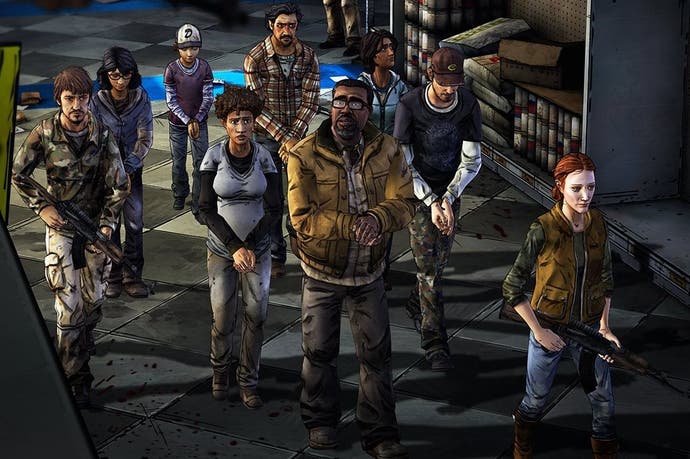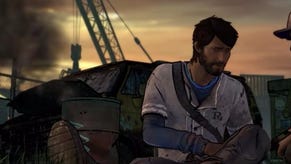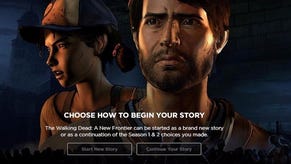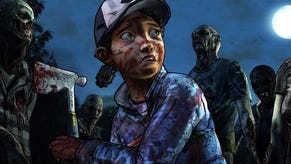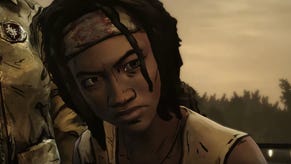The Walking Dead: In Harm's Way review
Distress flair.
Note: as ever with episodic games, this review may (probably will) contain spoilers for previous episodes of season two of The Walking Dead. Proceed with caution!
Welcome back, one and all, to Telltale's semi-regular dose of post-apocalyptic misery, as we hit the midpoint of the second season. Episode 3: In Harm's Way is fairly short - around 90 minutes or so - but such brevity is welcome in a series that likes to put its players through the emotional wringer as frequently and as forcefully as The Walking Dead does.
It also means that In Harm's Way feels slightly less flabby than the previous two episodes; with most of the exposition out of the way, both plot and character development can proceed pretty much unhindered. There are new faces to meet, but introductions are dealt with briskly as the group finds itself under the reign of the menacing Carver, played with throaty relish by Michael Madsen.
A wave of 'lurkers' may be approaching from the south, but they're little more than a background threat. Instead, it's Carver who represents the real danger, as he establishes his authority - first with an act of petty cruelty that resonates more than some of the gorier shocks we've seen, and secondly in a brutal outburst that, in my case, followed an act of apparent selflessness on Clem's part.
It gets worse. I found two late-game sequences (though one is optional) genuinely hard to watch, even given the stylised presentation. The problem with most zombie fiction is that the viewer/reader/participant eventually becomes desensitised to death and acts of violence. While there are signs that Telltale might be running out of new ways to shock us, it's a testament to the framing - and timing - of these moments that they still have the power to startle.
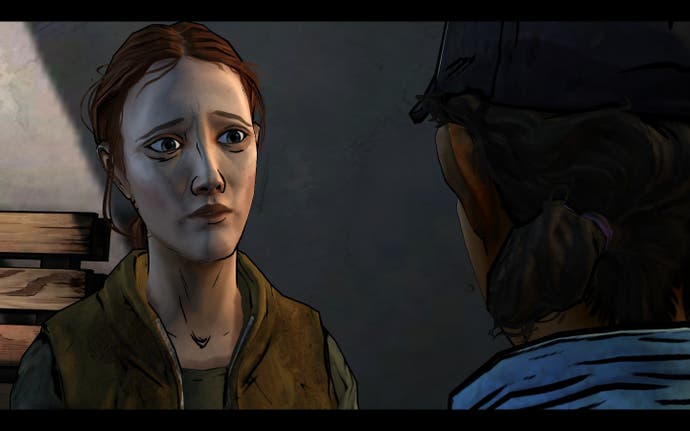
The goofy but likeable Reggie is the pick of the newcomers, but Carver is once again the star. He's a fascinating villain because, at times, he's very nearly sympathetic. Though his speeches may be little more than a way of manipulating those under his command, when he says everyone has "an obligation to make this community a beacon of hope" rather than just a temporary place to hide from the zombies, he sounds like he means it.
More unnervingly, two moments of defiance on my part led him to believe that he and Clementine shared a common strength, and in an electrifying scene between the two, I recalled an earlier moment when Clem had insisted to the pitiably, irritatingly fragile Sarah, "You have to be tough to survive." In that light, Carver's insistence that weakness should not be tolerated as it could potentially threaten the group took on a deeper significance. There's madness in his method, I considered, but perhaps the reverse also applies? The zombies might be a little way off, but the ghost of social Darwinism lingers throughout.
Beyond that, it's hard to say too much about In Harm's Way, not least because player paths would appear to be diverging more and more - and suffice to say, if you haven't yet played the interstitial episode 400 Days, now might well be the time to do so. It's worth noting that, on PC at least, this is by some distance the most technically competent episode to date: I didn't experience any major hiccups, glitches or frame-rate drops, and only one brief moment where a Quick-Time Event didn't seem to function properly.
It is, however, getting close to ridiculous how often the group's most dangerous plans involve putting Clementine at risk. Indeed, perhaps Episode 3's title could be read as a sly wink at Telltale's present dilemma. In the final half-hour, you get the option to respond to a request with "why is it always me?" at the precise moment you're thinking the same thing. The writers just about manage to get away with it, but the scenarios are beginning to feel contrived.
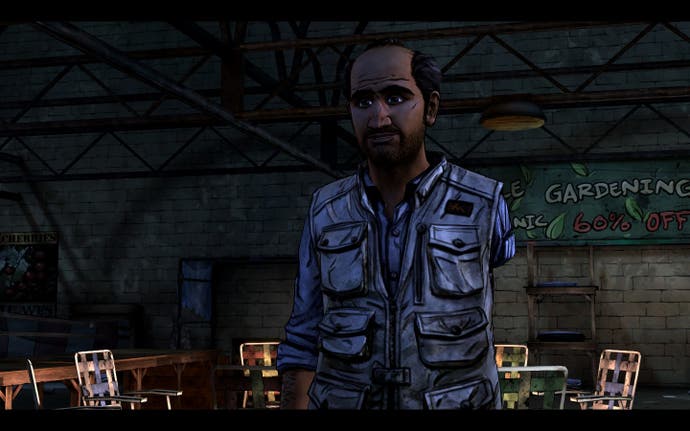
Elsewhere, a sequence that ostensibly relies on stealth tactics rings slightly hollow when it's clear you can explore with complete freedom, Telltale once again squandering an opportunity to introduce more traditional game mechanics. Yet perhaps it's wise to resist: for the average player, the tension is every bit as tangible thanks to some smart direction, and it's only if you refuse to play along that you discover it's all smoke and mirrors.
A second play-through does lay some of the game's limitations bare. At least one decision has little meaningful impact on the story, while others simply introduce different dialogue options and interactions while guiding you towards a similar destination - albeit with one or two changes to the cast. Again, however, it's only a criticism if you're deliberately trying to peek behind the curtain. Most will be happy to be convinced by the illusion that their choices are affecting the story.
For my part, I'm quite satisfied that my actions are colouring the narrative even if they're not quite shaping it - and what's certainly clear is that I'm considering my decisions more carefully than ever. There may be an element of second-guessing Telltale's intentions that is affecting the post-game stats, but the results screen suggests that the decisions are getting harder, or at least more divisive. The widest split for any of the five major choices in In Harm's Way is around 60/40.
The episode ends on a cliffhanger that's agonising in more than one sense, and a 'next time' preview that leaves you decidedly unclear on where Clem and the gang might go next. What could easily have been a mid-season lull feels instead like a peak. If Telltale can maintain this standard for the rest of the season, it could yet top The Walking Dead's first run in terms of quality - if not novelty.
